Study Strategies Survey Results and Analysis
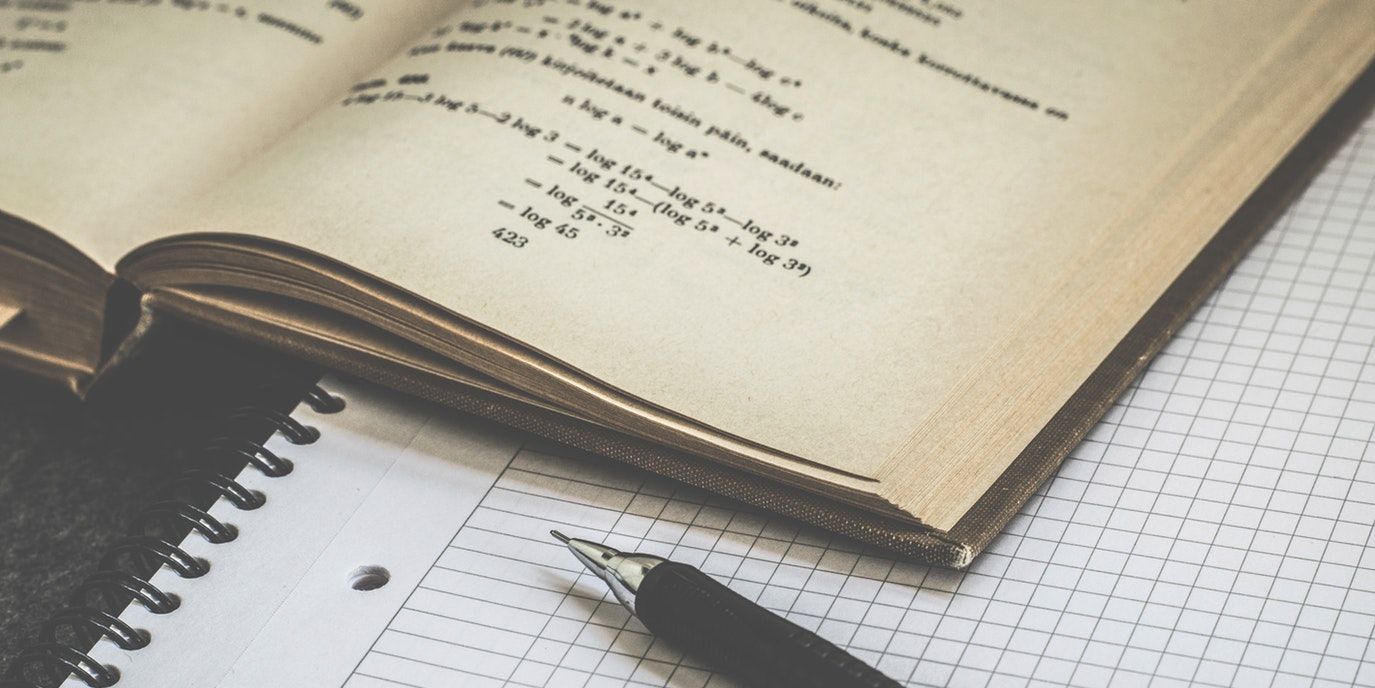
As a company interested in all things note taking, we sent out a survey in early May to find out more about how students prepare for assessments and what kind of role note taking plays in their studies. From a sample size of 47, we received interesting results across all of our questions but the ones discussed below stood out to us. Once again, a huge thank you to everyone who participated!
First, let's take a look at how students choose to review a large amount of content in preparation for an assessment.
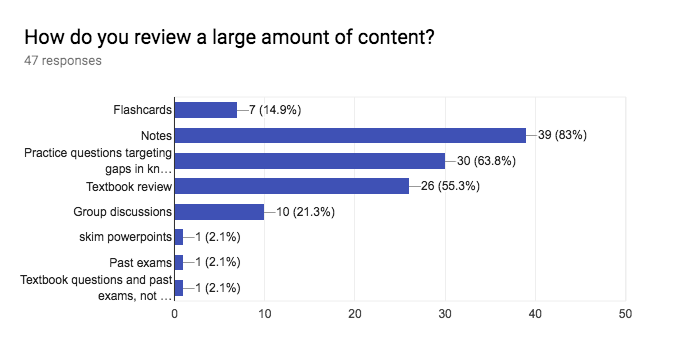
Reviewing past notes came first with test questions second. While participants were asked to select all options that apply these results are promising. The utility of taking notes is well emphasized and a significant percentage of students understand the importance of answering practice questions as a tactic to master material. While reviewing notes is critical to keeping up with information presented in class, practice tests present a battle tested method of performing well, assuming the questions are similar to assessment questions.
Textbook review comes in at a close third, but group discussions and flashcards lag behind significantly. Group study is understandably low as a large amount of content is difficult to digest through discussion, but should definitely not be discarded as a valid way to improve understanding of topics as group-level perspectives are a well documented way of achieving insight about concepts.
The comparatively low support of flashcards is interesting, as spaced practice with flashcards is a great way to cover a lot of material. Given, of course, that you have enough time to cover them all at a good pace. While cramming flash cards does help retain information to some degree, spacing out this practice across days, or at least hours yields better memory performance for over 90% of individuals.
These results from the above question were further supported by student responses when asked about helpfulness during exam preparation.
The bias toward test questions and practice exams is clear with flashcards and group study lagging behind again. The only shift here is the decreased support of using notes to prepare. This result makes sense as well since the emphasis of this question was on performance during tests, and as mentioned above, practice questions are the best way to address this.
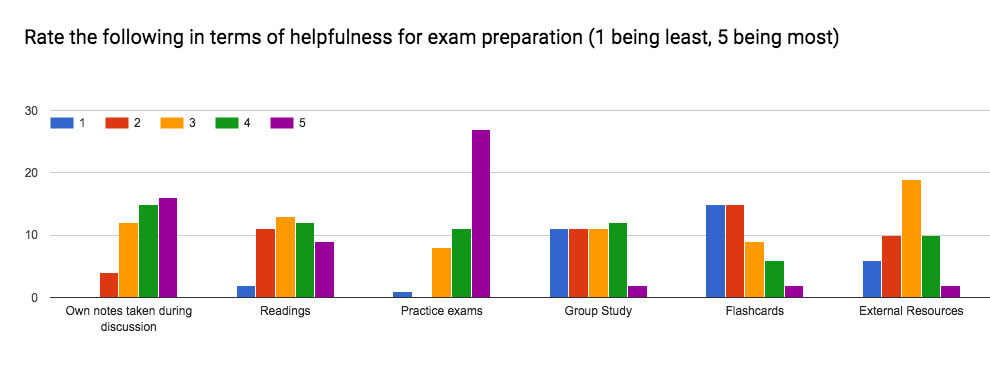
This next question is quite self explanatory, but illuminatory when taken in consideration with other factors. The vast majority of students replied that they use pen and paper to some degree, a choice that far outpaced any other provided options.
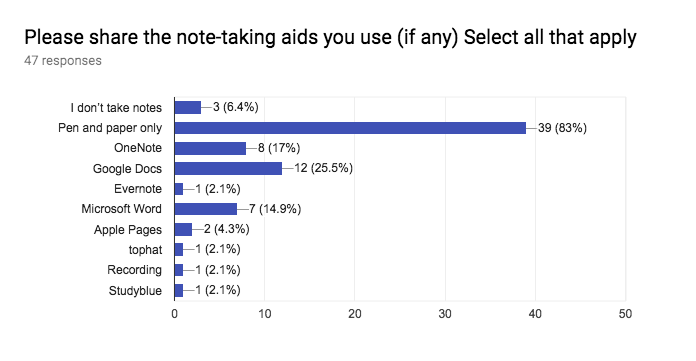
So despite the convenience and speed of typing on a computer, pen and paper notes win. Though harder to keep track of, notes on paper have been linked to higher information retention rates.This could, however, be due to the fact that since students cannot write as fast as the professor speaks, they are forced to synthesize the information, an action which correlates directly with retention.
Finally, let's take a look at the most common difficulties students encountered while taking notes. Over and over again we got similar responses summarized in the examples below.
"Professors often write too small, talk and cover topics to fast (especially in mathematical based courses in my experience) it makes it quite difficult to write meaningful notes down and pay full attention to the lecture at the same time."
"In my ... class, we're not allowed to use electronic devices so that they don't impede on discussion quality. This leaves me with only pen and paper to write down notes; however, often times, discussions flow so fast, it is difficult to keep up and continue to contribute to the topic."
"When I try to thoroughly understand the topic before taking down notes, I naturally fall behind.”
The main takeaways here are that the combination of fast moving classes and lack of time to sit back and process every concept leads to incomplete notes which have the potential to affect test performance.
So, how do you deal with this problem? Apart from engineering a time machine and attending all your lectures several times you have a few alternatives. The first is to try and prepare as best you can before the lecture begins and already have a rudimentary understanding of what is being covered in class to reduce the time spent thoroughly understanding content while it is being presented. The second is to try and record lectures in either audio or video form and jot down the current time when you start falling behind so that you can quickly come back to the material later on.
The caveat to the second option is that some students are not allowed to record lectures in any format and others need the written permission of the professor to do so. These two factors, among others, were reflected in our question about lecture recordings where the overwhelming majority stated that they do not record lectures.
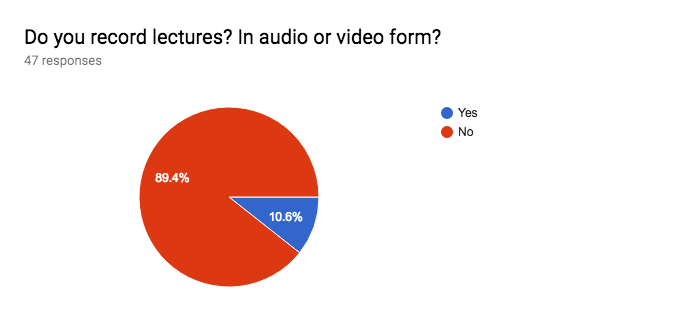
So in order to benefit from the second option, try to get permission from your professor or check if your class is recorded and posted by the school.
So there you have it, the responses and insights we received from our survey. We currently have another survey in the works and will be taking a look at those results in a later article.
Thanks for stopping by!
